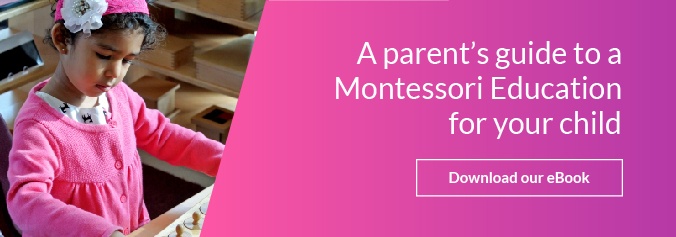When parents think about early education, their first thoughts often focus on academics—learning the alphabet, counting, or recognizing shapes. But just as important as academic learning is the emotional and social growth that happens in the preschool years. For families in Livermore, Fountainhead Montessori School offers a proven, holistic approach that nurtures both the heart and mind of the child.
At the core of the Montessori philosophy is a deep respect for the child as an individual, capable of forming meaningful relationships and managing their own emotions with the right support. In a Montessori classroom, social and emotional development isn’t a separate subject—it’s an integral part of the daily experience for young children.
The Importance of Social and Emotional Development
Before a child can succeed academically, they need a solid foundation in emotional regulation, self-confidence, empathy, and communication. These are the very skills that help children:
- Navigate friendships and group play
- Handle transitions and new routines
- Express their feelings in healthy ways
- Cooperate and resolve conflicts
- Develop confidence and resilience
Montessori education is designed to support these developmental needs in a calm, respectful, and nurturing environment.
Respectful Communication and Conflict Resolution
One of the most noticeable features of a Montessori classroom is the way both teachers and children communicate. At Fountainhead Montessori, teachers model respectful language, active listening, and gentle tone. Instead of giving orders, they ask questions and offer choices: “Would you like to put your work away now or in five minutes?” This approach encourages cooperation rather than resistance.
When conflicts arise, as they naturally do with young children, Montessori teachers guide students through peaceful conflict resolution. Rather than punishing or removing children from situations, teachers help them identify their feelings, express their needs, and listen to the perspective of others. This process not only resolves immediate issues but teaches children essential lifelong skills in empathy and communication.
Mixed-Age Classrooms Build Community
One of the unique aspects of Montessori education is the mixed-age classroom. At Fountainhead Montessori School, children aged 3 to 6 learn and play together in the same classroom. This environment mimics a natural community and gives children regular opportunities to learn from and care for one another.
- Younger children benefit from observing older peers who model appropriate behavior, academic work, and social interactions.
- Older children reinforce their learning and develop leadership skills by helping and guiding their younger classmates.
These peer-to-peer interactions foster a sense of responsibility, patience, and empathy—qualities that are essential to strong emotional and social development.
Independence Builds Confidence
Montessori classrooms are designed to promote independence. Children choose their own activities, manage their workspaces, and take responsibility for caring for their environment. From preparing snacks to cleaning up after themselves, these small but meaningful tasks give children a sense of agency and pride.
This independence directly supports emotional development. When young children feel capable and trusted, they develop a strong sense of self-worth and confidence. They learn that they can take initiative, solve problems, and contribute to their classroom community.
A Calm and Orderly Environment
The physical environment at Fountainhead Montessori School is intentionally peaceful, orderly, and inviting. The calm atmosphere allows children to focus, regulate their emotions, and feel secure in their surroundings. Natural lighting, soft colors, and thoughtfully arranged materials help reduce overstimulation—something especially important for children who are still learning to manage their emotions.
This peaceful setting promotes emotional regulation by giving children the space and tools they need to process big feelings and calm themselves when overwhelmed.
Emphasis on Grace and Courtesy
In Montessori classrooms, lessons in “Grace and Courtesy” are a regular part of the curriculum. These lessons teach children how to greet one another, wait their turn, say “please” and “thank you,” interrupt politely, and offer help to others.
More than just good manners, these skills give children the confidence to interact kindly and effectively with their peers and adults. When children know what is expected of them socially and are taught how to meet those expectations, they feel more at ease and develop stronger, healthier relationships.
Teachers as Guides, Not Dictators
Montessori teachers don’t dominate the classroom; they observe, guide, and support. This creates an environment where children feel seen, respected, and safe. The teacher-child relationship in Montessori is based on trust and mutual respect, which sets the stage for children to explore their emotions and social relationships freely and without fear.
Because teachers spend several years with the same children in Montessori classrooms, they build strong, nurturing relationships that help support each child’s emotional development in a personal and lasting way.
Social and Emotional Learning That Lasts
The emotional and social skills developed in the Montessori classroom don’t disappear when a child enters elementary school—they become part of the child’s personality and toolkit for life. Children who have learned to regulate their emotions, express themselves, respect others, and solve problems peacefully are better prepared to face the challenges of school, relationships, and life beyond the classroom.
Discover the Montessori Difference
If you’re looking for an early education program that supports the whole child—emotionally, socially, and academically—Fountainhead Montessori School offers an environment where your child can thrive.
Come see how our Montessori classrooms foster self-awareness, empathy, independence, and a strong sense of community in young children. Schedule a visit and discover the lifelong benefits of a Montessori education for your child’s heart, mind, and spirit.












Let us know what you think about this post
Put your Comment Below: